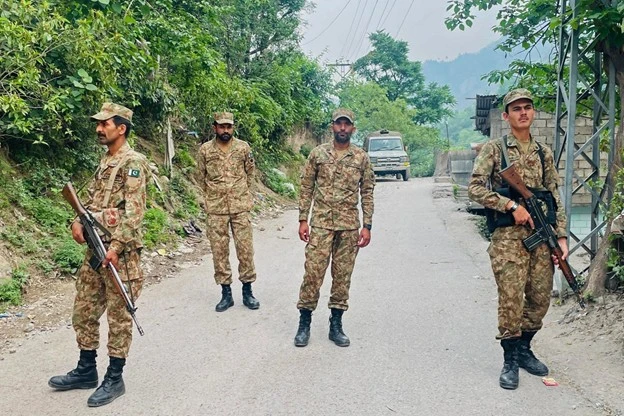It is becoming abundantly evident in Pakistan’s tribal belt’s struggle for narratives that speed of lying usually exceeds speed of truth. This is most clear elsewhere than in the recent protest by the Pashtun Tahafuz Movement (PTM), which once more charges the Pakistani military of indiscriminate bombardment in North Waziristan. Dramatic and emotionally charged, their allegation implies that Pakistani military have specifically targeted children and women among other people. Underneath the surface of this heated rhetoric, though, PTM’s honesty and goals are seriously called into question by a deliberate distortion of facts.
As painstakingly reported by investigative sources like The Washington Post, the truth is that Tehrik-i-Taliban Pakistan (TTP) militants now have access to drones originating in the United States. Far from the exclusive province of state forces, these capabilities are becoming tools in the arsenal of extreme groups aiming at destabilizing the area. These drones are hardly a secret; they come from backdoor ways thanks to the Afghan Taliban, who have become more and more confident since their comeback. Terrorists aiming at their own people for propaganda and strategic advantage are running the drones, not the Pakistani government.
Nevertheless, it is not the TTP or their Afghan facilitators who come under PTM’s wrath when these drones destroy communities and claim innocent lives, most notably the lives of Pashtun children. Rather, the organization quickly assigns Pakistani military responsibility. This is a deliberate move to change the emphasis from the actual offenders, not only a misrepresentation of the truth. PTM runs to blame Pakistan after TTP bombs kids with US-provided drones. Truth is purposefully neglected in this context, not only uncomfortable.
A disturbing trend is this selective outrage. Claiming to be the voice of Pashtuns underprivileged, PTM has not denounced TTP crimes with the same force it used to criticize the military. When radicals kill innocent people or demolish houses, it stays strangely quiet; nevertheless, it explodes with wrath the instant security agents intervene to neutralize threats. Such a slanted moral compass implies that agenda drives the movement more than justice. Why is PTM so hesitant to identify the adversaries who have generated the most bloodshed in the area if PTM really speaks for Pashtuns?
The hypocrisy is unbelievable. PTM holds Pakistan responsible for everything under the sun, drone strikes, curfews, disappearances, while giving the TTP, an organization that freely destroys Pashtun villages and displays its weaponry with impunity implicit cover. These terrorists are adversaries of the very people PTM purports to defend, not only of the government. It is not just dishonest, it is dangerous, to protect them while condemning the men who risk their lives in difficult terrain to guarantee peace.
Furthermore, PTM’s stories find resonance in sympathetic areas of social media and among foreign NGOs who hardly ever check ground reality. The result is an unbalanced picture in which bogus statements fly more quickly than drones. Allegations create an echo chamber of false information tweeted, shared, and published as reality devoid of any evidence. Rather than serving as conscientious stewards of public opinion, PTM’s leadership seems to be happy to repeat propaganda that fits the agenda of those that profit on anarchy.
More concerning perhaps is the silence over the part the Afghan Taliban played in this whole disaster. The Taliban have not only given TTP members safe havens but also allowed their operational capabilities, including access to high-tech equipment like drones, since they have taken over Afghanistan. Afghanistan has become a launching ground for terrorism targeted at Pakistan thanks to this cross-border collaboration. Still, PTM never criticizes the Afghan Taliban; their silence is deafening once more. Would it be possible that these organizations coordinate more than first seems?
Particularly the Pakistani military is not above criticism. Like every state entity, it must answer where data exists. But PTM’s style of mindless denigration has no positive use. It merely depresses front-line personnel and gives attackers who take advantage of such inner conflicts more confidence. In a democracy, constructive dissent is healthy; factual distortions and selective anger are not.
The Pashtun population ultimately deserves the truth, not weaponized myths. It deserves defense from false information as well as militant violence. PTM must muster the bravery to face all challenges, not only the ones that suit a neat political story if it really desires justice for its people. Its credibility will keep declining till then, lost in the cacophony of its own inconsistencies.
Public debate must be grounded in facts while the area negotiates actual threats such drones in the hands of terrorists, border instability, and ideological warfare. In the war for truth, PTM must decide which side to support, will it be with the people or with those who cause them damage? The war for truth is as vital as any conflict on ground. Integrity travels on a slower, harder road in the digital era, when lies fly faster than drones; however, it always arrives with more strength.







